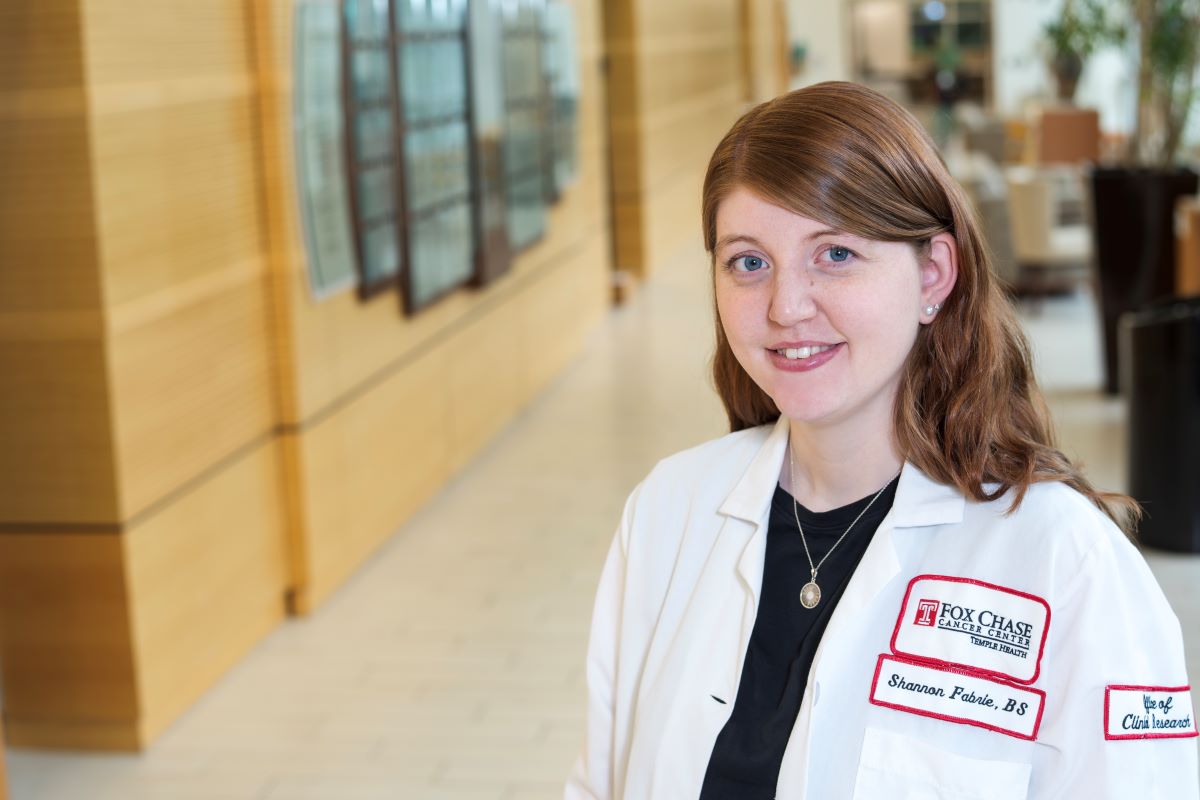
PHILADELPHIA (July 8, 2025) — A new method of assessing workloads for clinical researchers at Fox Chase Cancer Center has proven effective in mitigating workload imbalances and improving phase 1 clinical programs. The findings of this project were presented at the Association of American Cancer Institutes’ (AACI) Clinical Research Innovation (CRI) Annual Meeting.
A phase 1 clinical trial is the first step in testing a potential new drug in humans. The phase 1 program at Fox Chase, which is part of its Office of Clinical Research, plays an essential role in the early development of clinical trials. During this phase, researchers test new treatments to evaluate them for safety and appropriate dosage.
“This study came about because there didn’t seem to be a very robust system on how we were assigning studies and how we were assessing workload per study,” said Shannon Fabrie, BS, project lead and Disease Site Research Manager for phase 1 trials at Fox Chase. “Other systems just don’t work very well for phase 1 studies because they rank all phase 1 studies in one singular category.”
To improve on this, Fabrie designed the Oncology - Phase 1 Acuity Scoring System (O-PASS), a method aimed at improving workload distribution and ultimately expanding patient access to clinical trials.
O-PASS features a rubric that allows managers to evaluate each phase 1 clinical trial using 20 study-specific criteria on a standardized scoresheet. The scoresheet gives each clinical trial a weighted score that can then be used to assign studies to research coordinators according to the estimated workload outlined by the rubric.
“Using O-PASS allows me as a manager to clearly compare the workloads of my clinical research coordinators and clinical research nurses so that I may assess how best to balance the portfolio. I can also better assign high acuity studies to those with more experience that may be at a higher position level than others on the team,” said Fabrie.
In addition to using the rubric, Fabrie has also given her team assessment questionnaires to see whether this method has improved their work-life balance and whether the workload was fair and thoughtful.
“The feedback has been really positive so far,” said Fabrie. “The plan is to continue to assess the quality of work-life balance with similar questionnaires every six months and then hopefully expand the use of O-PASS to data specialists.”
The 17th Annual AACI CRI meeting was held June 23-25, in Chicago.